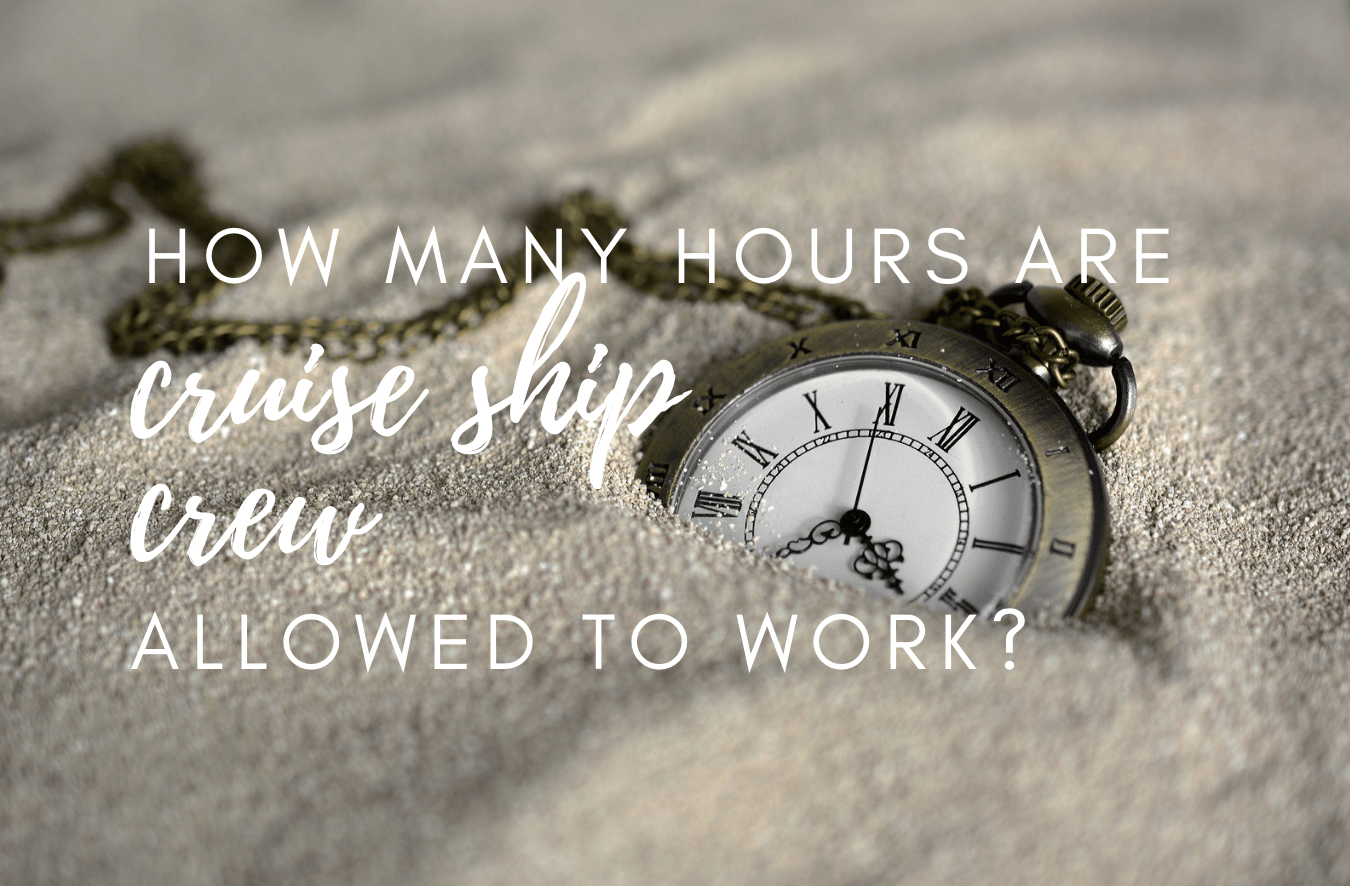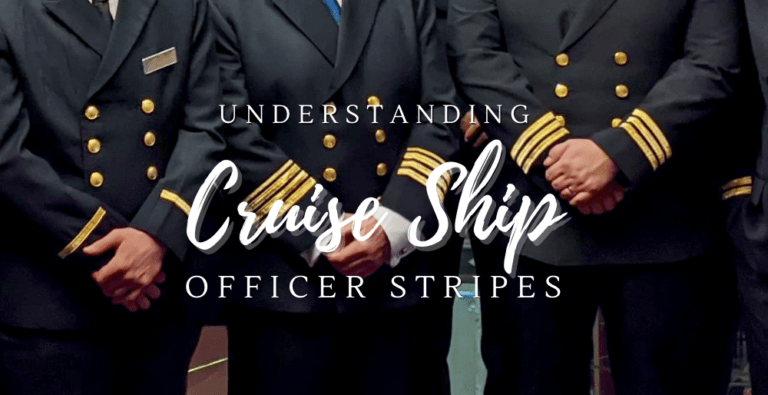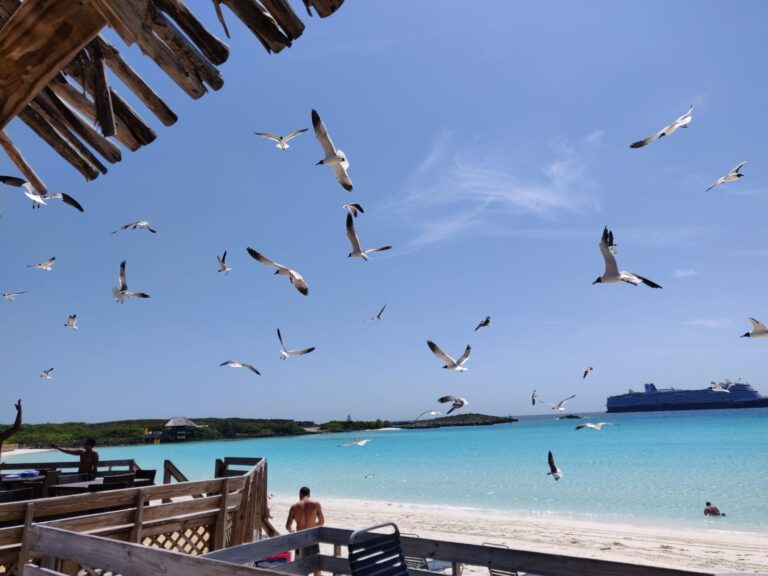How Many Hours Are Cruise Ship Crew Allowed to Work?
There are misconceptions and misinformation about literally everything these days. What life is like working on a cruise ship is no different. Working on a cruise ship is hard work and often with long hours. What does “hard work” mean though? How many hours do cruise ship employees work? How long do cruise ship crew members work – and, how many hours are cruise ship crew allowed to work?
Disclosure: All opinions are my own and do not necessarily reflect those of my employer.
As an Amazon affiliate I may earn a small commission on eligible purchases.
There are a lot of people out there that will just put out the blanket statement of, “a lot”, “14 hours a day!”, or will say that the ships are registered in foreign countries to avoid labor laws (a concept called flags of convenience), and well, that’s only part of the story. It’s true that crew on cruise ships certainly work a lot, and most cruise ship crew do not get days off but today we’re going to break it down by actual rules. We’re going to dig a little deeper into what regulations exist in regards to working hours onboard for cruise ship crew.

How Many Hours Cruise Ship Crew Work is Determined by the MLC 2006.
There are a lot of rules and regulations to working at sea. Some of these rules have to do with how much bacon to make for the main buffet, but there are a whole set of rules dealing with the life and rights of a seafarer. The main document that deals with these issues and that we will be referencing is MLC 2006 or the Maritime Labour Convention 2006. It’s a hefty document with a whole lot of information. This document has a huge impact on the life of seafarers and has a big impact of how many hours cruise ship crew are allowed to work. While this document discusses a tremendous amount of the life of the seafarer, today the focus will be on the section in regard to crew members working hours – Standard A2.3.
Referenced documents have been procured through the International Labour Organization‘s website.
DISCLOSURE: This is meant as general information. I am not an attorney. Not all standards and information mentioned will apply in all situations. To receive a copy of the governing rules on your ship, contact your Human Resources department. Copies are also often available through the onboard computer systems, your crew account, and/or training computers.
The MLC 2006 is a document that was created at the Maritime Labour Convention in 2006. Not every country has agreed to be apart of it, and only those ships registered to countries that have agreed to it are covered by its standards. It has not been ratified or agreed upon by countries on this list.
Countries that follow the MLC 2006 are listed on the International Labour Organizations website, as well as various ratifications and requirements that the country has added. The United States is not among the countries that have ratified this document. Whether or not that is good is up to interpretation, for a look at US labor laws, take a look at the Fair Labor Standards Act for some (not-so) light reading.
It’s often said that cruise lines register their ships in specific countries to avoid stricter labor laws (among other things – we’re not getting into all of those other things today, though); however, among the countries that adhere to the MLC 2006 are those such as the United Kingdom and the Netherlands – countries that some major cruise lines have opted to register their ships in and are known for having above average labor laws. So, if flagging your ship in the Bahamas requires the same work/rest hours as the Netherlands, the basis of the argument that it is to avoid labor laws in regards to working hours seems flawed. That does not negate the flags of convenience concept in its entirety though – there are other purposes that these flags carry for the cruise lines.
Below are the countries where most major American cruise brands have their ships registered:
Where Are Cruise Ships Registered?
| Country | Cruise Lines With Ships Registered In Respective Countries | Social Benefits Specified by the Country | In Force Date |
| Bahamas | Crystal Cruises (ocean ships), Disney Cruise Line, Fred Olsen Cruise Line, Norwegian (except for the Pride of America ship, with US registry), Royal Caribbean, Regent Seven Seas, Seabourn, Virgin Voyages | medical care; sickness benefit; unemployment benefit; old-age benefit; employment injury benefit; family benefit; maternity benefit; invalidity benefit and survivors’ benefit. | 11 Feb 2008 |
| Bermuda | Cunard, P&O, Princess | medical care; sickness benefit; unemployment benefit; old-age benefit; employment injury benefit; family benefit; maternity benefit; invalidity benefit and survivors’ benefit. | 02 May 2014 |
| Italy | Costa Cruises | sickness benefit; unemployment benefit; old-age benefit; employment injury benefit; family benefit; maternity benefit, invalidity benefit and survivors’ benefit. | 19 Nov 2013 |
| Malta | Celebrity (Celebrity Cruises expedition ships are registered in Ecuador which does not adhere to MLC 2006 standards) | medical care; sickness benefit and employment injury benefit. | 22 Jan 2013 |
| Marshall Islands | Regent Seven Seas | medical care; sickness benefit; unemployment benefit; employment injury benefit and survivors’ benefit. | 25 Sep 2007 |
| The Netherlands | Holland America Line | medical care; sickness benefit; unemployment benefit; old-age benefit; family benefit; maternity benefit; invalidity benefit and survivors’ benefit. | 13 Dec 2011 |
| Panama | MSC | Scheme 1, old-age benefit, invalidity benifit and survivors’ benefit. For scheme 2, medical care; sickness benefit; old-age benefit;maternity benefit; invalidity benefit and survivors’ benefit. | 06 Feb 2009 |
| United Kingdom | Princess | medical care; sickness benefit; unemployment benefit; old-age benefit; employment injury benefit; family benefit; invalidity benefit and survivors’ benefit. | 07 Aug 2013 |
According to the MLC 2006, How Many Hours Are Cruise Ship Crew Actually Allowed to Work?
How many hours cruise ship crew work based on the MLC rules can get a bit complicated. Here is the wording from the MLC:
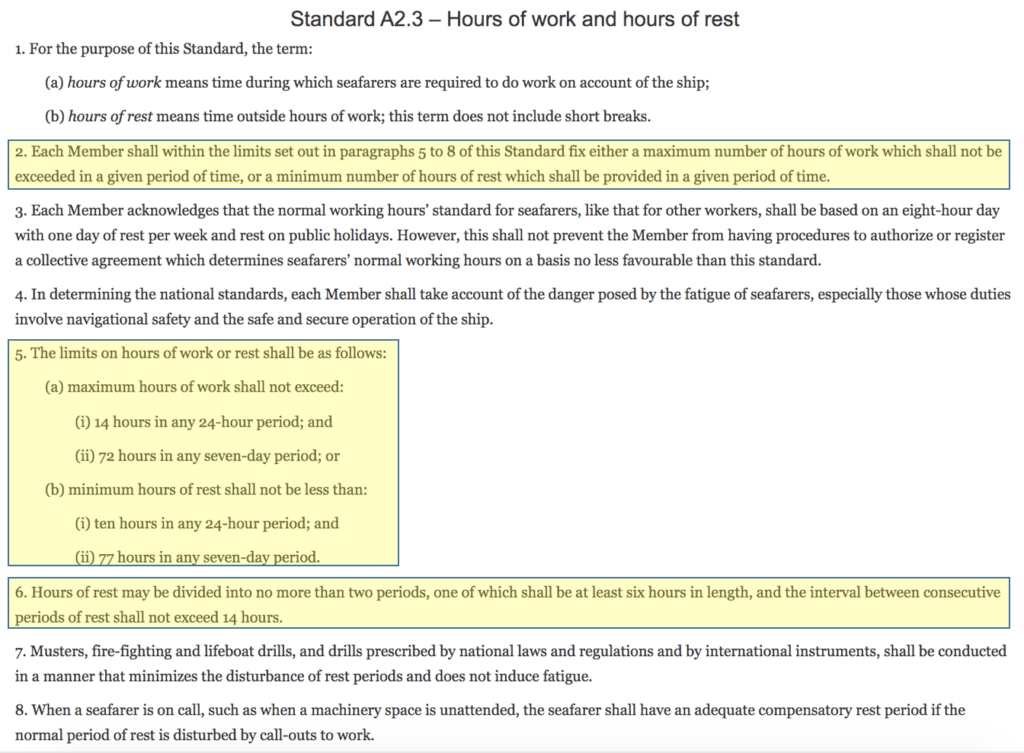
In essence a cruise line can either choose to follow maximum work hours or minimum rest hours. Either way you look at it crew members are allowed to work a lot of hours. Going from rest hours – only requiring 77 rest hours in a seven day period could mean working up to 91 hours. Yikes! This is when you look at how many hours cruise ship crew are allowed to work and you go “Holy Crap! That’s a lot of work!”
While it’s pretty obvious that this is a lot of work, figuring out work and rest hours seems fairly straightforward until you read paragraph 6. The rest hours part is where it gets a bit confusing. A crew member needs to have 10 hours of rest within a 24 hour period, not divided into more than two rest periods one of which needs to be at least 6 hours long – and those rest periods can’t be more than 14 hours apart. So, what does that mean?
Let’s do an example to illustrate. The below schedule (completely made up) would be in violation because of an hour forward (clocks shifting forward by an hour):
| Work Schedule | Rest | Work Hours/Rest Hours |
| 00:00 (hour forward at 02:00)-07:00 | 6.0 rest hours (pesky hour forwards)- to reach 10 hour rest requirement over two rest periods another rest period of 4 hours must occur within 14 hours | |
| 07:00-10:00 | 3 hours work | |
| 10:00-11:30 | 1.5 hours rest – not long enough to meet requirement. 7.5 rest hours total for the day | |
| 11:30-14:00 | 2.5 hours work = 5.5 work hours total for the day | |
| 14:30-17:30 | 3 hours rest – not long enough to meet requirement. 10.5 hours total for the | |
| 17:30-20:30 | 3 hours work = 8.5 work hours for the day | |
| 20:30-22:30 | 2 hour rest – not long enough to meet requirement. 12.5 hours rest for the 24 hour period | |
| 22:30-00:00 | 1.5 hour work = 10 hours of work for the day |
The above schedule would not be in violation if it wasn’t an hour forward. That would mean the initial rest hours would be 7 hours, and the break from 14:30-17:30 would suffice in having a 3 hour break. = 10 rest hours in no more than two time periods (7 hours and 3 hours respectively), not separated by more than 14 hours. Check and check.
This might seem like ridiculous scheduling. On a ship the commute to work is very short, but going back and forth can still be tiring. If you are working in the galley where it’s very busy parts of the day (meal times or prep times) and less busy others, having a schedule that is broken up with shorter rest periods isn’t that unusual. It is up to the supervisor to ensure that they are not in violation of these maritime laws. Conversely, it’s never wise to schedule someone that they are that close to breaking the rules. All it takes is something going wrong at work for them to stay 15 minutes later and those 15 minutes could put that crew member in violation. Also, with the exception of those working the overnight shifts – shoutout to those Deck and Engine Officers, and those with cruise ship jobs you may never have heard of as well as security guards, front office staff, and everyone else working those overnight shifts – hour forwards are terrible.
Conversely schedule wise, if you were to have 10 consecutive hours off – say you got off work at midnight and didn’t start until 10:00am – that doesn’t mean you won’t get another break throughout the day. It just means that the work/rest hour requirements portion of the MLC 2006 is satisfied. The ship is also required to feed you and allow satisfactory time for meal breaks, but that is another discussion for another day.
For Cruise Ship Crew Everyone’s Schedule Is Different
And, on another side note, it’s not unusual depending on if it’s a sea day or a port day, or perhaps there’s a big event one day and not the next for crew to have varied schedules between days. One day it might be 12 hours and the next is only 5 or 6. It’s really dependent on the position onboard but there is definitely variation between schedules.

With How Many Hours Cruise Ship Crew are Allowed to Work – Do Cruise Ship Employees Get Time Off?
Yes! The MLC 2006 and ILO has mandated that cruise ship employees have to get time off. How else would cruise ship crew get all those awesome Instagram pictures?
Seriously though, crew do have to have time off, otherwise they would be in violation of all of those international maritime labor laws. Based on the MLC 2006 crew are required to get 77 rest hours per week.
How Do Cruise Ships Keep Track of Employee Work Hours?
The exact system is presumably slightly different between each cruise line, but every ship that is registered to a country that has agreed to the MLC 2006 will have a time capture system of some sort to keep track of how many hours cruise ship crew are working. Most often it will be a computer system that the crew are required to report their hours in on a daily basis. There are usually computers set up throughout the crew areas to allow crew to easily clock their hours.
It’s actually a rule that the crew members clock their hours so that a record is kept. This requirement is spelled out in paragraph 12 of section 5.2:
“12. Each Member shall require that records of seafarers’ daily hours of work or of their daily hours of rest be maintained to allow monitoring of compliance with paragraphs 5 to 11 inclusive of this Standard. The records shall be in a standardized format established by the competent authority taking into account any available guidelines of the International Labour Organization or shall be in any standard format prepared by the Organization. They shall be in the languages required by paragraph 11 of this Standard. The seafarers shall receive a copy of the records pertaining to them which shall be endorsed by the master, or a person authorized by the master, and by the seafarers.”
Paragraph 12, MLC 2006, Standard A2.3
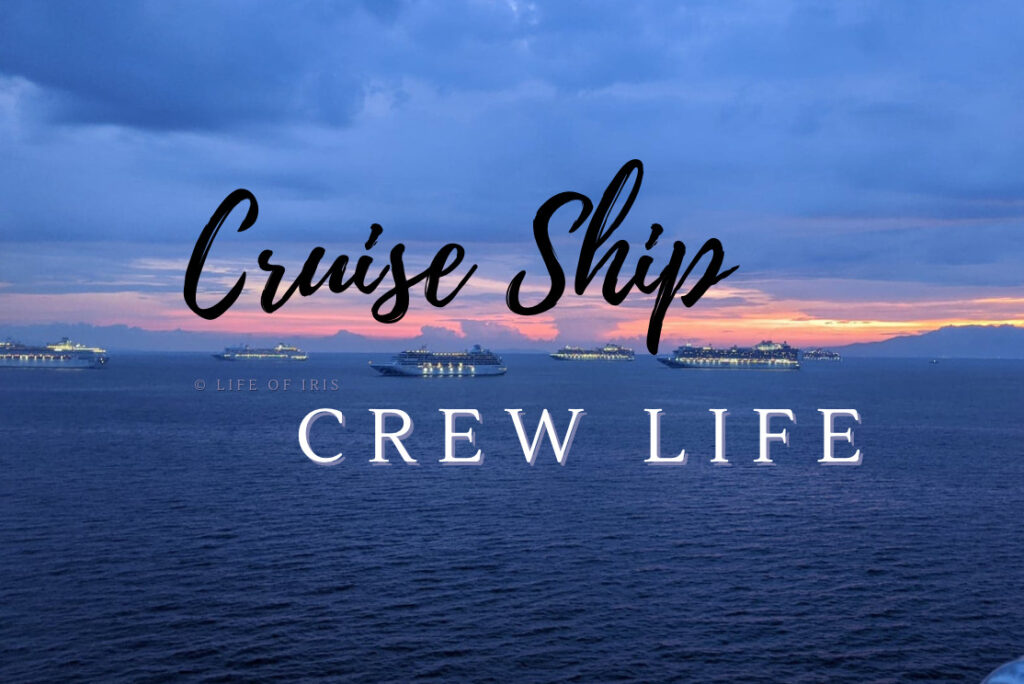
Want to know more about what cruise ship crew life? From dating onboard to what all those stripes mean – here’s your guide to cruise ship crew life.
Do Cruise Ship Workers Get Overtime Pay?
There is no set “yes” or “no” to whether or not cruise ship workers get overtime pay and while the MLC sets out some rules on this it’s not cut and dry as to whether or not crew are required to get overtime pay. But, yes, overtime pay for cruise ship crew can (and does) happen.
Whether or not a company is required to overtime pay is dependent on the contracts agreed to as well as specific requirements of the companies port state (where the ship is registered). So, one company may be required to pay overtime over a certain number of hours and another may be required to pay it over another. Additionally it’s dependent on how a contract is set up (see the fully or partially consolidated section below).
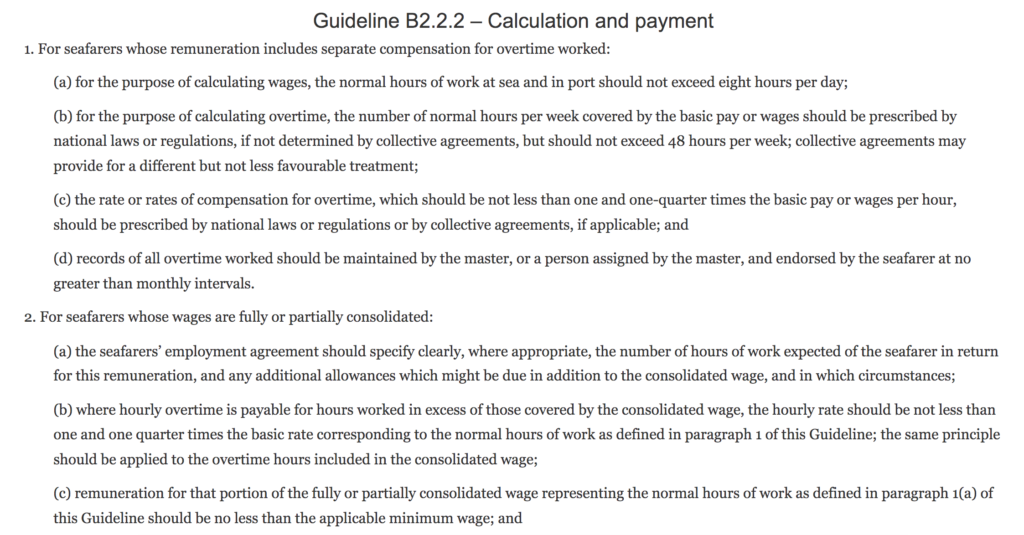
Do Cruise Lines Follow the Rules About How Many Hours Cruise Ship Employees Work?
What a complicated question. In my experience, yes. Now, I will have some friends that will read this and go, “but there was that one day that I had to work so much and everything broke and yada yada yada”, for those friends, please keep reading.
It is not a perfect system by any means, and this is not to say that their aren’t those supervisors that try to pressure crew into not documenting every time they work. However, it is poor practice and is in violation of seafarers rights for crew to be pressured to work “off-the-clock”. Also, while for some ships these rules have been in effect for 15 years, countries have been ratifying and agreeing to the MLC 2006 at different points within those 15 years. The more the process of working on-the-clock is normalized, the more it is apart of the onboard culture, the less people will try to get away with breaking the rules.
And, to make sure that the ship isn’t violating rules left, right, and center, there are auditors and inspectors that come onboard at various points in the year to review all of this paperwork. Much like there are inspectors for public health, there are also inspectors to ensure that ships are adhering to labor laws.
If you feel that the company is violating any of your labor rights, discuss with appropriate avenues onboard such as your supervisor, Human Resources, or department head. Alternatively, contact the companies Reporting Hotline (most companies have these that can be dialed from any shipboard telephone), your corporate supervisor, or union representative.
Sometimes Cruise Ship Crew Work More Hours Than Legally Allowed When There Is an Emergency
When you work more hours than cruise ship crew are allowed to work or don’t have enough rest hours it’s commonly referred to as an “ILO” violation (International Labour Organization). Any violation of these rules has to have an explanation as to why there was a violation. That then gets included with the documentation that the auditors for instance would see. There are times that unforeseen situations would happen that could result in a crew member working more hours than they should. Maybe an engine breaks and they’ve got to fix it. Hopefully that is a one time thing. Or, maybe there is a fire onboard the ship and the crew have to respond to their emergency stations – yes, that is work, but it is absolutely necessary to do. In this case it can be acceptable for cruise ship crew to work more hours than allowed (or contracted). But, in general, with the exception of emergencies, crew members should not be violating their work/rest hours.
In the Standard there is even a provision in case of emergencies:
“14. Nothing in this Standard shall be deemed to impair the right of the master of a ship to require a seafarer to perform any hours of work necessary for the immediate safety of the ship, persons on board or cargo, or for the purpose of giving assistance to other ships or persons in distress at sea. Accordingly, the master may suspend the schedule of hours of work or hours of rest and require a seafarer to perform any hours of work necessary until the normal situation has been restored. As soon as practicable after the normal situation has been restored, the master shall ensure that any seafarers who have performed work in a scheduled rest period are provided with an adequate period of rest.”
Paragraph 14, MLC 2006, Standard A2.3
Say for instance that you’ve already worked your hours for the day and the fire alarm goes off. As a crew member you will most likely have a function that requires you to report when the fire alarm goes off (or most alarms, really). Even though responding to that alarm would put you in violation of your work/rest hours responding to that alarm is essential for the health, safety, and security of the ship. So, while it is technically your “work”, it’s still imperative that you preform your duties in an emergency. Again, these violations to your work/rest hours would have to be documented with an explanation as to why; but, the master of the vessel is within their rights (arguably their duty as well) to have crew respond to emergencies as necessary – even if it’s in violation of that crew members work/rest hours. If it requires you to go excessively over the hours that crew members are allowed to work it may be that another day those affected crew members need to work a reduced number of hours.
Some Crew Members Work More Hours On Purpose
There are some crew that will work their max hours and then work some more on the basis of completing a project or wanting to do a good job. This tends to be supervisors or roles onboard that are singular (meaning only one of that function onboard). Amongst some there is a mindset that the more exhausted you are the bigger your badge of honor will be. Most of the time the crew that find themselves in these situations have either not properly asked for help, have not delegated, or have not properly explained constraints of certain projects or issues with department heads onboard. Or it could be that they have not adequately advocated for themselves. It can be hard when you are part of your own mini-department to ask for help from others, and it’s also hard when you are not just trying to do your best for the guests but also maybe get a great recommendation to get a promotion. Asking for help is hard. It makes you vulnerable. (Scary, ick!) Who wants to do that? Sometimes it’s necessary.
Most often these crew are aiming for perfection for the passengers, which is an admirable trait. But, they are doing a disservice to themselves, to the company, and are breaking the law. If there is so much to get done that your role onboard is requiring you to work past the number of hours that you are allowed, clock those hours. How else will the company know that in the future they need to staff more people in that role or in support of that role? Maybe they’ll never add more staff to it and the onboard product for the passengers won’t be as good. That is the companies choice. Yes, it stinks when the passengers get a less great onboard product because there isn’t enough staff to get it done. If you can’t adequately accomplish your job in the literal 91 potential legal hours that you have in a week to do it – there is something wrong with the situation. Seriously, something has got to give. Maybe instead of going the extra mile that day you just go the extra half mile.
If you “need” to get a project done within a certain time frame and despite your massive incredible work ethic it’s not possible go to your department head and say, “hey, so I can only get this project done if I go over my hours and get an ILO violation” and they’re like, “well, just don’t clock those hours but you have to get it done or else”. First off I am sorry you have a terrible supervisor, secondly, figure out how to get that in an email and send it to their onboard email. Put it in writing that to finish this project you will have an ILO violation, ask them to confirm that the project is important enough to deem that ILO violation, cc Human Resources. When you know your rights it’s harder to be taken advantage of.
Reminder: rules and regulations on your ship may differ for whatever reason than what is discussed in this article – this could be because your ship is not registered to a country that has adopted the MLC 2006. A list of the rules adhering to your ship can be obtained through your onboard human resources department.
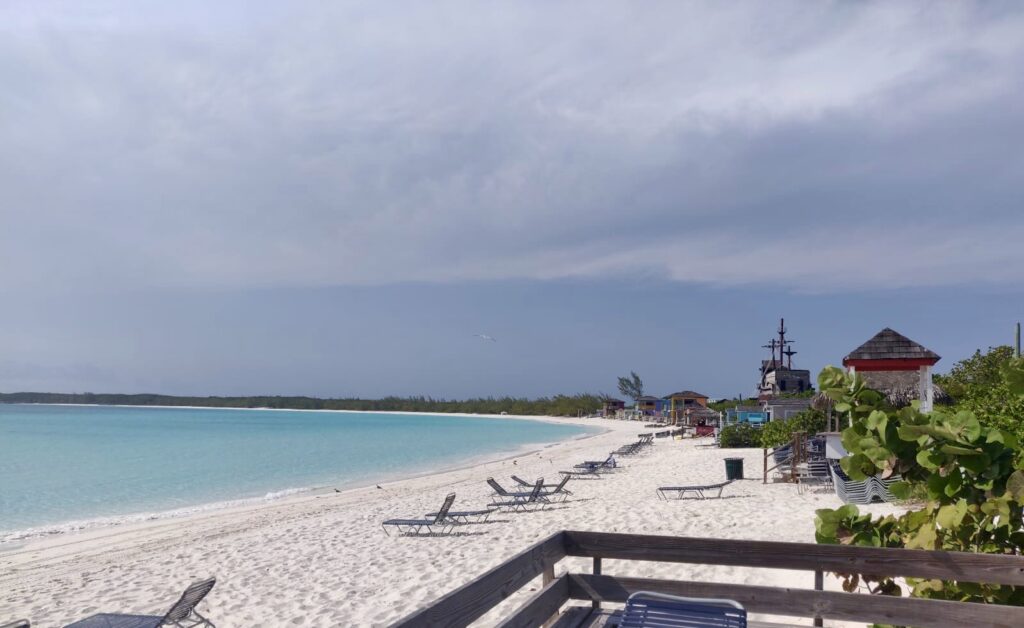
Acceptable Violations…
If the master of the vessel sees the violations and deems the circumstance not acceptable for a violation, then, that is that. The task needs to be delegated to someone else and ask for some help. You aren’t being a hero. Stop perpetuating this culture. It took me years to understand this, and one particular supervisor I had about 8 years ago onboard that told me the difference and gave me a very big lesson on how to delegate, ask for help, and advocate for myself. It is possible to be an incredible employee, give the passengers a fantastic experience, and still follow the rules.
And, if you are not making your own schedule and you end up with a schedule that violates the work/rest hours, your supervisor would be the one in hot water for not properly scheduling you. However, if you notice that it’s in violation, do your supervisor a favor and mention it. They are in fact humans and could have made the error with absolutely no malicious intent and just made a mistake. If those scheduling errors aren’t a mistake and you feel that your job is in jeopardy if you don’t follow it, talk with Human Resources.
Fun little aside on this: situations where supervisors pressure employees to work long ridiculous hours, work “off the clock” and or do work for free is a labor issue everywhere. Just do a quick search for “working off the clock” or the like and you will see that this issue is far reaching and most certainly not exclusive to cruise ships.

Do cruise ship crew date or hookup? Can they date passengers? Take a look at what it’s like Dating on a Cruise Ship.
How Many Hours Cruise Ship Crew Work Is Often Dependent on What is in Their Contract
Earlier with the rest hour requirements we discovered that could technically equate to 91 hours in a week. That’s crazy! Well, some cruise ship crew contracts feature stipulations about how many hours cruise ship crew are allowed to work or that they would get overtime pay if they worked over a certain number of hours.
Overtime pay does exist on cruise ships depending on the contract. It could be given based on working over a certain number of hours in a day (e.g. 10) or in a week (e.g. 70). The amount that overtime pay is depends greatly on the job and base wage of that crew members position. But, some crew members do get overtime pay.
Different positions onboard also will have different contract stipulations. Musicians will have different contract working hours than engineers than front office than a lampoonist or printer. Onboard this can kind of create awkward tension sometimes, too. Someone that’s working 70 or 77 hours a week and sees someone with an actual day off? It can be hard mentally to deal with that.
Sometimes how these contracts are different is through collective bargaining agreements. The MLC 2006 Standard A2.1 discusses Seafarer’s Employment Agreements and includes options for collective bargaining agreements, contracts, and other employment rights. There are positions onboard that have negotiated their contracts through union-type bargaining agreements. Each position onboard is different, and each recruitment agency and/or union related organization is different in what the agreement is for the workers covered. Regardless, different contract stipulations exist for crew members onboard in regards to how many hours cruise ship crew work and/or overtime pay.
How Many Hours Do Cruise Ship Employees Work?
Cruise ship crew are allowed to work up to 91 hours in a week – but there are rest hour requirements. But, how many hours do cruise ship employees work? Let’s take it right from the horses mouth. From Princess Cruises Careers FAQ section:

In my experience, this description – listed as 7 days a week and between 10 and 13 hours a day – is accurate to how many hours cruise ship employees work. However, most employees would not work 13 hours every single day.
While working 13 hours every single day would be exactly 91 hours – the legal maximum number of hours – it is also unlikely to happen every single day. Scheduling work/rest hours within that schedule would be challenging, but also most employees contracts range from 10 to 11 hours per day and many positions onboard can receive overtime pay past their hours per week. So, for instance if you worked more than 77 hours in a week depending on your contract you may be eligible for overtime pay. If you worked 13 hours every day that would result in 14 hours of overtime pay per week which to be honest, the company doesn’t want to have to pay.
When You Find Out How Many Hours Cruise Ship Crew Are Allowed to Work It Can Be Overwhelming – but Working on a Cruise Ship Can Also be a Lot of Fun
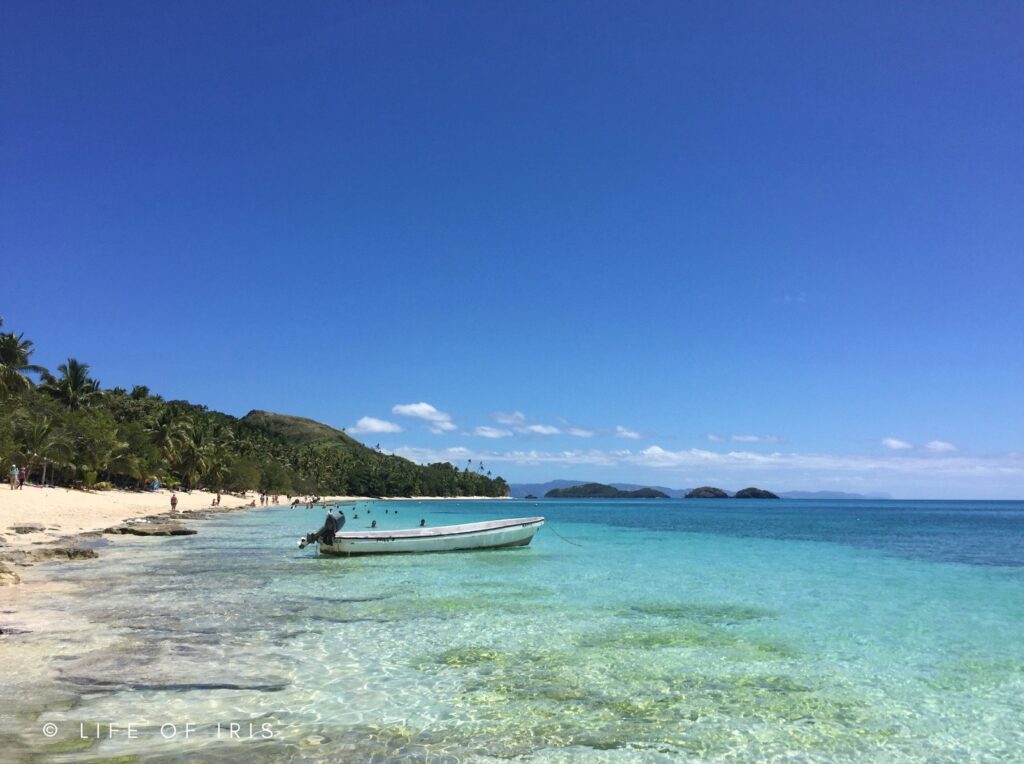
While there are rules about how many hours cruise ship crew are allowed to work – those can still be super long hours. It’s also a lot of time away from family, friends, and loved ones. Life at sea can be a lot of fun, and a great way to see the world, maybe even meet your future spouse – but, it’s certainly hard work.
It’s great that there are international organizations ensuring that basic standards of living and working conditions are met in the seafaring community. This certainly helps to bring more equitable working conditions to those sailing the seven seas.

